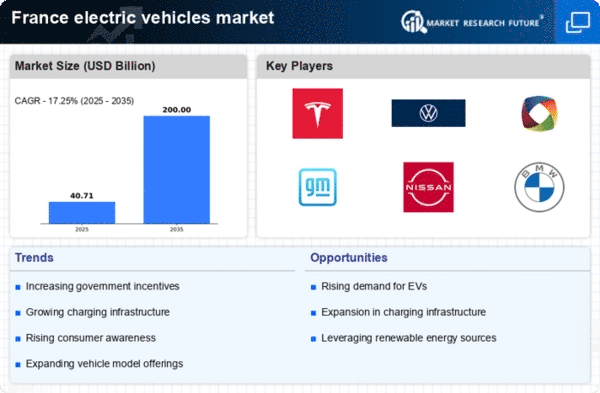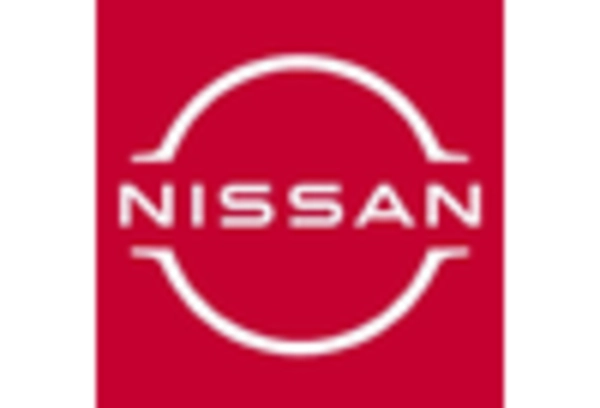Rising Environmental Awareness
The electric vehicles market in France is witnessing a notable surge in demand. This increase is driven by growing environmental consciousness among consumers. As awareness of climate change and air pollution grows, individuals are more inclined to adopt sustainable transportation options. This shift is reflected in the growing number of electric vehicle registrations, which reached approximately 20% of total vehicle sales in 2025. The French government has also been proactive in promoting eco-friendly practices, further encouraging consumers to transition to electric vehicles. This heightened environmental awareness is likely to continue influencing purchasing decisions, thereby propelling the electric vehicles market forward.
Economic Incentives for Consumers
Economic incentives provided by the French government are a significant driver of the electric vehicles market. These incentives include substantial subsidies for electric vehicle purchases, tax reductions, and exemptions from certain fees. As of 2025, the average subsidy for purchasing an electric vehicle in France is approximately €7,000, making electric vehicles more financially accessible to a broader audience. This financial support is particularly appealing to first-time buyers and those looking to replace older, less efficient vehicles. Consequently, these economic incentives are likely to continue stimulating demand in the electric vehicles market, fostering a more sustainable automotive landscape in France.
Advancements in Charging Technology
Technological innovations in charging solutions are playing a crucial role in shaping the electric vehicles market in France. The development of fast-charging stations and wireless charging technologies is addressing one of the primary concerns of potential electric vehicle buyers: charging time. As of November 2025, the number of fast-charging stations has increased by over 50% compared to previous years, making electric vehicles more convenient for everyday use. This expansion in charging technology not only alleviates range anxiety but also enhances the overall user experience, thereby encouraging more consumers to consider electric vehicles as a viable alternative to traditional combustion engine vehicles.
Government Regulations on Emissions
Stringent government regulations aimed at reducing greenhouse gas emissions significantly influence the electric vehicles market in France. The French government has set ambitious targets to cut emissions by 40% by 2030, which has led to the implementation of policies that favor electric vehicle adoption. These regulations include penalties for high-emission vehicles and incentives for electric vehicle purchases. As a result, consumers are increasingly motivated to switch to electric vehicles to comply with these regulations and avoid potential fines. This regulatory environment is expected to continue driving growth in the electric vehicles market as more individuals and businesses seek to align with national sustainability goals.
Corporate Sustainability Initiatives
Many companies in France are adopting corporate sustainability initiatives, which significantly impact the electric vehicles market. Businesses are increasingly recognizing the importance of reducing their carbon footprints and are investing in electric vehicle fleets. This trend is particularly evident in sectors such as logistics and public transportation, where companies are transitioning to electric vehicles to meet sustainability goals. As of 2025, it is estimated that corporate fleets account for nearly 30% of electric vehicle sales in France. This corporate shift not only enhances brand reputation but also aligns with consumer expectations for environmentally responsible practices, thereby driving growth in the electric vehicles market.
















